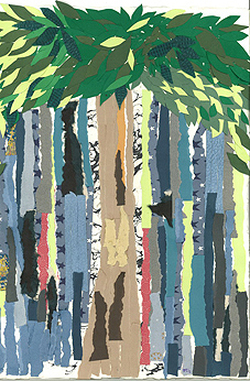Rethinking the Global SouthMukoma Wa Ngugi
Èdouard Glissant’s view of being “in relation“ offers a way out of the locked postcolonial dialectics. For Glissant “The poet’s word leads from periphery to periphery and yes, it reproduces the track of circular nomadism; that is, it makes every periphery into a center; furthermore it abolishes the very notion of center and periphery“ (31).3 There is no hierarchy of knowledge and aristocracy of aesthetics4, only cultures in relation. Glissant championed composite peoples: “those who could not deny or mask their hybrid composition, nor sublimate it in the notion of a mythical pedigree, do not ’need’ the idea of genesis because they do not need the myth of pure lineage (141). Composite works better than hybridity. Identity is formed by interactions with the other cultures. I have been formed by Kenyan, Asian, Islamic and Western cultures. In much the same way a composite Asian or Briton has been formed by as many cultures as their cultures have interacted with. In a sense, whether we acknowledge it or not, we live in what Glissant calls a “fragmented diversity,“ and we are all creolized. All theories rest on the shoulders of the theories that came before. In fact, cultural theories emerge from the belly of previous theories. The first rumblings of South-to-South and other horizontal relationships as a way of organizing and talking about a world with no hierarchies of knowledge and cultures are to be heard in the belly of decolonization and the process of its theorization. In colonialism, science, philosophy, culture and history were all a one-way street. In the postcolonial world, knowledge becomes a multiple lane highway in which all sorts of exchanges, some of them equal and others exploitative take place. In the newly emerging third world, Cubans fight alongside South Africa’s African National Congress, liberation theology develops in Latin America, and black American liberation struggles, Black power in the United States, becomes Black Consciousness in South Africa; Gandhi’s “satyagraha“ is conceived and developed in racist South Africa and then deepened in the anticolonial struggles in India; individuals such as W.E.B.DuBois tie black America both to Africa through Pan-African activismand to the entire colonized world; Che Guevera could just as easily go the Congo or Bolivia; and Fanon – born in Martinique – could die for Algeria and for the larger third world. At the same time, the Afro-Latinos and Black Americans experience and deal with questions of race and identity differently, in the same way that Afri- centricity, the idea of having Africa as a center, will have different meanings and uses in different parts of the African diaspora. Gabriel Garcia Marquez’s magical realism is different from Ben Okri’s, yet one hears familiar echoes in each; the same way one hears familiar echoes in Lingala and Merengue music, or in African American blues and Malian blues. This third world speaks to a South-to-South relationship and it needs to be studied using concepts such as Glissant’s relation, concepts that makes visible the relationships within and among already composite cultures. Pages: 1 2 3 4 5 6 |

|
Essays in this ForumRethinking the Global South by Mukoma Wa Ngugi From Indian Literature to World Literature: A Conversation with Satya P. Mohanty by Rashmi Dube Bhatnagar and Rajender Kaur Asia in My Life by Ngugi wa Thiong'o The Global South and Cultural Struggles: On the Afro-Asian People’s Solidarity Organization by Duncan Mceachern Yoon The Fault Lines of Hindi and Urdu by Sanjay Kumar Reframing Colonialism and Modernity: An Endeavour through Sociology and Literature by Gurminder K. Bhambra Varieties of Cultural Chauvinism and the Relevance of Comparative Studies by Tilottoma Misra Literature to Combat Cultural Chauvinism: A Response by Shivani Jha Is There an Indian Way of Thinking about Comparative Literature? by E. V. Ramakrishnan Modernity and Public Sphere in Vernacular by Purushottam Agrawal West Indian Writers and Cultural Chauvinism by Jerome Teelucksingh Oral Knowledge in Berber Women’s Expressions of the Sacred by Fatima Sadiki |